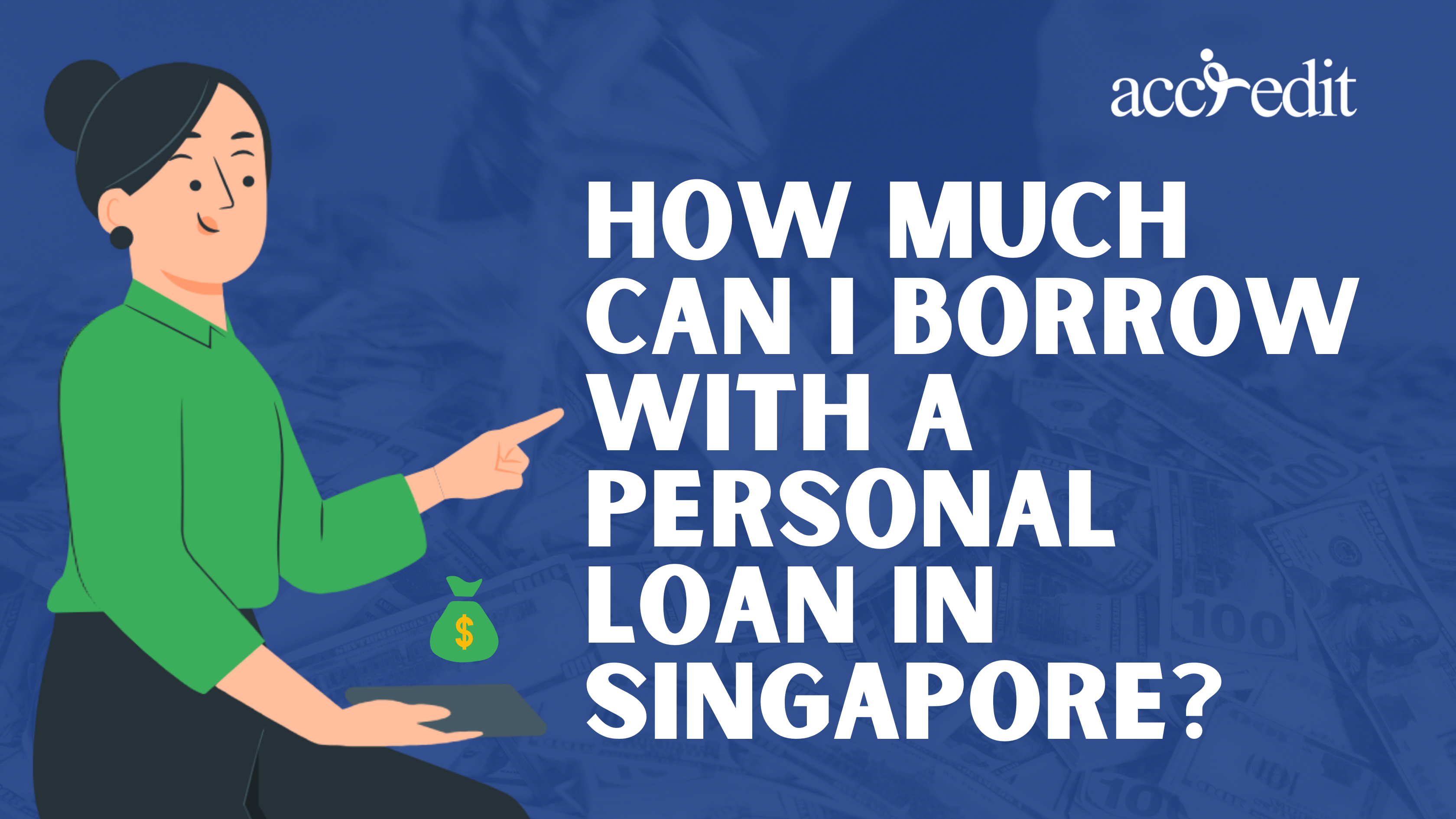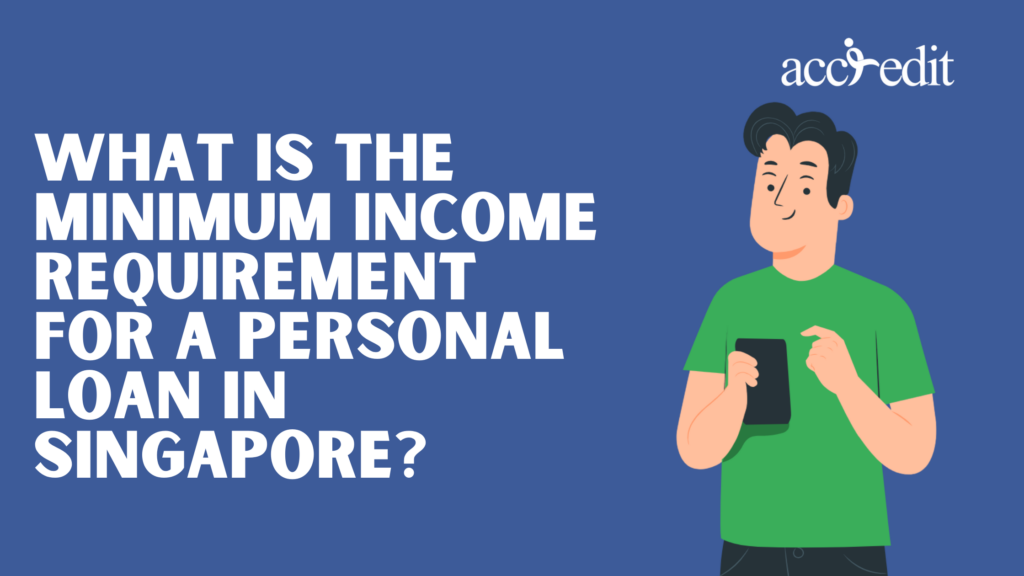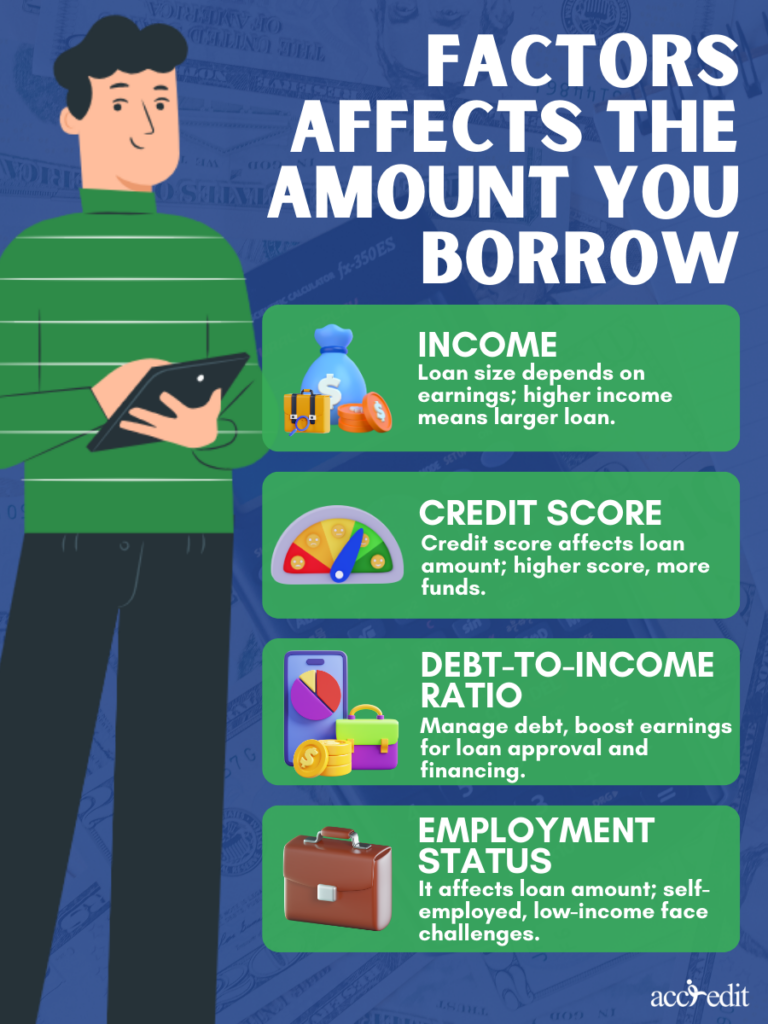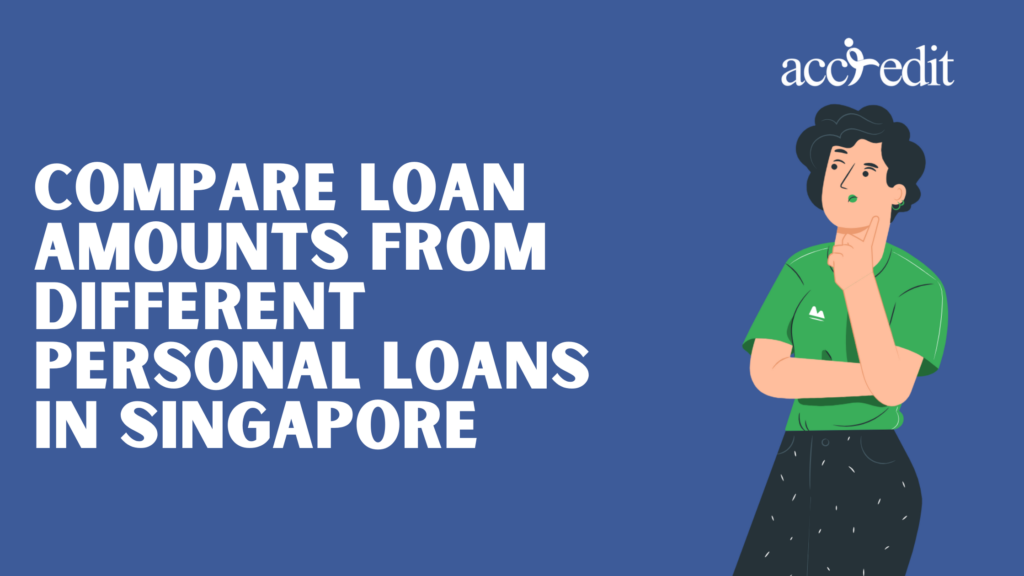
Financial emergencies can strike without warning, leaving you searching for a lifeline. Enter personal loans – a fast and easy answer to your monetary woes. But before you embrace this financial tool, it’s crucial to comprehend the exact amount you’re qualified to borrow.
In this article, you’ll uncover the details of loan amounts, the necessary income qualifications, and the factors that impact your borrowing capability in Singapore. Get ready to take control of your finances with confidence!
What is a loan amount?
A loan amount is a critical aspect of the borrowing process, representing the sum of funds that a lender makes available to you. This amount depends on several factors, such as your creditworthiness, income, and the lender’s policies for underwriting.
Comprehending the loan amount is vital when seeking a personal loan. It serves as the foundation for wise financial planning and decision-making. Failing to grasp this crucial aspect can lead to unforeseen financial difficulties, making it essential to your lending journey.
What is the minimum income requirement for a personal loan in Singapore?

Before embarking on your quest to determine the loan amount you wish to borrow, it is vital to assess your eligibility. In Singapore, the majority of banks offer personal loans to both citizens and permanent residents, requiring a minimum yearly income of S$30,000 for qualification.
Foreigners may also receive loans, though a higher annual income of between S$40,000 to S$60,000 is required. However, for those who may fall below the S$20,000 earnings bracket, licensed moneylenders offer loan options to cater to your financial needs.
| Lender Income Requirement | Singaporeans/ PRs | Foreigners |
| Bank | S$30,000 per year | S$40,000 – S$60,000 per year |
| Licensed Moneylender | Earn less than S$10,000 or S$20,000 a year | Earn less than S$10,000 or S$20,000 a year |
How much money can I borrow with personal loans in Singapore?

Gain clarity on the borrowing limits for personal loans in Singapore with the following chart. It provides an extensive breakdown of the borrowing amount available from banks and moneylenders.
| Loan providers | Minimum Loan Amount | Maximum Loan Amount |
| Licensed Moneylenders | S$3,000 for Singaporeans and PRs S$500 for foreigners | 6x times your monthly salary |
| Banks | S$500 or S$1,000 | 4x times your monthly salary or 10x times your monthly salary |
What factors affect the amount you can borrow?
There are several factors that can affect the amount you can borrow with a personal loan in Singapore. These include:

- Income. The amount of loan you can secure depends heavily on your ability to pay it back. A substantial earnings figure usually results in a larger loan size. Conversely, if your earning potential just about meets the bare minimum requirement, then you can expect to obtain a comparatively smaller loan sum.
- Credit Score. Your credit score is a key factor that influences the loan amount you may receive. A sterling credit score enhances the likelihood of being approved for a more generous loan sum. Conversely, if you have a history of missed or late payments that led to a lower credit score, you can expect to receive a lower loan amount.
- Debt-to-Income Ratio. Your debt-to-income ratio (DTI) is crucial in determining your loan amount. A high DTI can make it harder to get approved or result in a lower loan amount. Keep your debt in check and earnings high to maintain a healthy DTI and increase your chances of securing financing.
- Employment Status. It can also affect the loan amount you receive. Self-employed or low-income individuals often find it challenging to obtain a loan and are usually offered a smaller loan amount. In contrast, employed individuals enjoy a regular salary, which makes it easier for lenders to determine their repayment capability, and therefore may receive a more substantial loan amount.
Compare loan amounts from different personal loans in Singapore

When evaluating loan options, it is essential to consider the loan amount offered by each lender. To simplify the process of comparison, a comprehensive list of loan amounts available from various providers has been compiled to provide a clear understanding of the available options.
| Personal Loan | Minimum Income Amount | Minimum Loan Amount | Maximum Loan Amount |
| Accredit Personal Loan | S$10,000 or less | $3,000 for Singaporeans & PRs S$500 for foreigners | 6x your monthly salary for an income of S$20,000 |
| SCB CashOne Personal Loan | S$20,000 | S$1,000 | 2x monthly salary for yearly income below S$30,000; 4x monthly salary for yearly income greater than S$30,000; 8x monthly income for yearly income above S$120,000; cap at S$250,000 |
| DBS/POSB Personal Loan | S$20,000 | S$500 | 4x monthly salary; 10x your monthly salary for income greater than S$120,000 |
| OCBC Personal Loan | S$20,000 | S$1,000 | 4x monthly salary; 6x your monthly salary for income greater than S$120,000 |
| UOB Personal Loan | S$30,000 | S$1,000 | 95% of your available credit limit |
| HSBC Personal Loan | S$30,000 | S$1,000 | 4x monthly salary for income S$30,000 to S$120,000; 8x monthly salary for income greater than S$120,000 |
| CIMB CashLite Personal Loan | S$30,000 | S$1,000 | Up to 90% of your credit card limit |
| Citi Quick Cash Loan | S$30,000 | S$1,000 | 4x your monthly salary or S$150,000 |
Choosing the right personal loan for you
To secure the best personal loan, you must consider several factors beyond just the loan amount. You need to evaluate the interest rate, loan terms, and processing fees, among other things, to make an informed decision. In order to streamline the selection process, we’ve compiled a table of the finest personal loans available in Singapore for your reference.
| Personal Loan | Interest Rate | Loan Amount | Loan Term | Processing Fee |
| Accredit Personal Loan | Up to 4% monthly | S$1,000 – 6x monthly income | Up to 1 year | 10% of the principal amount |
| HSBC Personal Loan | 4% (EIR 7.5% p.a.) | S$1,000 – 8x monthly salary | Up to 7 years | S$0 |
| SCB CashOne Personal Loan | 3.48% (EIR 7.99% p.a.) | S$1,000 – 8x monthly salary | Up to 5 years | S$0 |
| CIMB CashLite Personal Loan | 3.38% (EIR 6.38% p.a.) | Up to 90% of your credit card limit | Up to 5 years | S$0 |
| UOB Personal Loan | 3.99% (EIR 7.49% p.a.) | S$1,000 to 95% of your available credit limit | Up to 5 years | S$0 |
| DBS/POSB Personal Loan | 3.88% (EIR 7.9% p.a.) | S$500 – 10x your monthly salary | Up to 5 years | 1% processing fee |
| Citi Quick Cash Loan | 4.55% p.a. (8.5% EIR) | S$1,000 – 4x your monthly salary | Up to 5 years | S$0 |
| OCBC Personal Loan | 5.43% (EIR 11.47% p.a) | S$1,000 – 6x your monthly salary | Up to 5 years | S$100 |
Thoughts
The sum you borrow with a personal loan is a fundamental factor to ponder upon. To ensure you make a wise decision, explore the loan amounts offered by each lender and opt for the one that aligns with your financial circumstance and means.
Consider the interest rate, repayment period, fees, and other relevant terms, in conjunction with the loan amount, to guarantee a well-informed verdict. Grasping a clear perception of the terms and conditions, inclusive of the monthly payment and the overall cost of the loan, will aid in crafting a solid plan for prompt repayment.
Get Personal Loans Up to 6 Times Your Monthly Income with Accredit Moneylender
Accredit Moneylender is all about making your personal loan experience hassle-free. We understand that getting a loan can be a daunting process, especially if you’re a low-income earner. That’s why we offer borrowing limits of up to six times your monthly income for that earning over S$20,000.
But don’t worry, we’ve got you covered even if you earn less than S$20,000. You can still qualify for a borrowing limit of S$3,000. We believe that everyone deserves the financial support they need, regardless of their income level.
Our loan application process is quick and easy, so you can get the cash you need in no time. Plus, our approval rates are high, so you can rest assured that your loan will be approved fast. So, why wait?
Apply now and experience the convenience of hassle-free loan processing with Accredit Moneylender.

